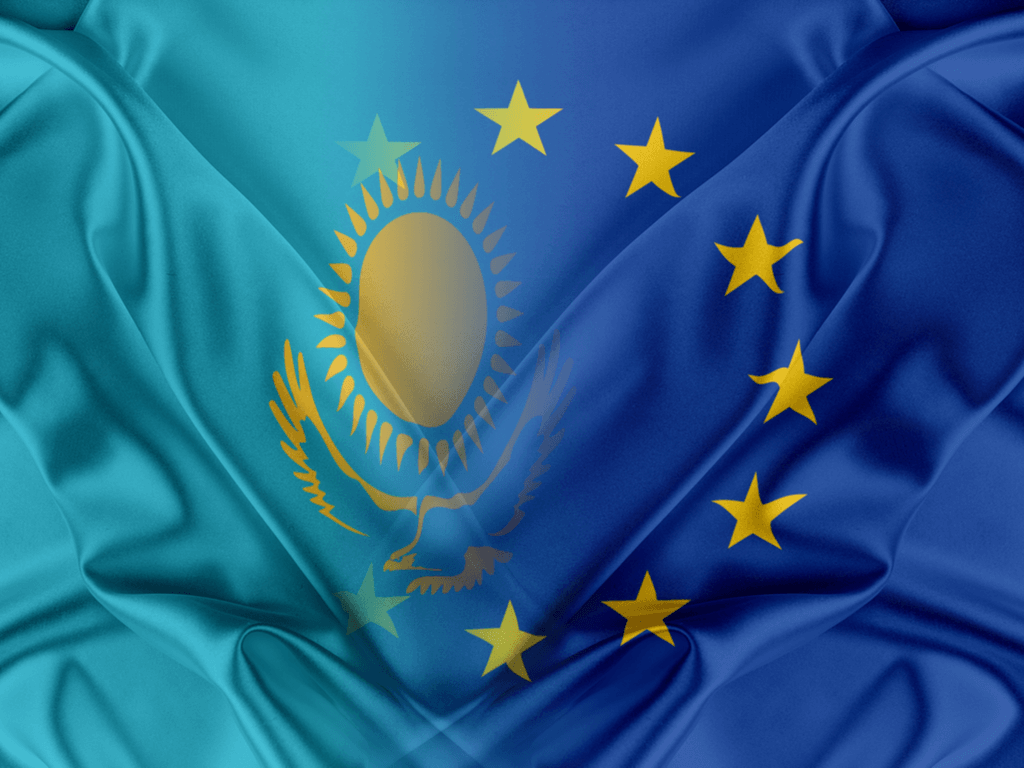The European Parliament has formally ratified a landmark Enhanced Partnership and Cooperation Agreement (PCA) partnership deal with Kazakhstan, its first with a central Asian country.
In a debate and vote in the parliament in Strasbourg on Monday night, the new deal was approved by MEPs by an overwhelming majority, with 511 votes in favour, 115 against and 28 abstentions.
The new Agreement will replace the Partnership and Cooperation Agreement that has been in force since 1999 and, according to a Commission spokesman represents a “significant step forward” in EU-Kazakhstan relations.
The European Union and Kazakhstan, the largest country in Central Asia, signed an Enhanced Partnership and Cooperation Agreement (EPCA) in Astana on 21 December 2015 but the new 150-page document had to be rubberstamped by MEPs – and member states – before it could come into effect.
The newly-signed deal showcases the deepened relationship between Kazakhstan and the European Union, and provides for greater trade and business relations between them. On Tuesday,reaction to the landmark deal was swift. In a tweet, Eduard Kukan, a senior Slovakian MEP, agreed that it represents a significant step forward in EU-Kazakhstan relations.
Kukan, who is a former foreign minister of Slovakia, also said the deal “opens up a new chapter in relations with Kazakhstan.” The EPP deputy said he hoped “that this will boost not only economic but also political relations.”
The Parliament had the power to approve or reject the agreement and a senior source at the European Commission, in welcoming the news, told this website that ratification showed that it was possible for countries in the region such as Kazakhstan to enjoy close relations with both the EU and Russia.
In the debate in parliament, EU commissioner Vera Jourova, the official responsible for the Justice, Consumers and Gender Equality dossier, also welcomed the outcome of the vote, saying it would pave the way for improved cooperation with Kazakhstan. She also acknowledged the efforts made in recent years by Kazakhstan to promote a green economy, setting ambitious targets, diversification and various investments in renewable energy.
The EU has become Kazakhstan’s first trade partner, representing one-third of its external trade, she pointed out. The official noted that Kazakhstan had also become an increasingly important partner in the promotion of peace and security.
The debate that preceded the vote was told that the Enhanced PCA will also enhance concrete cooperation in some other 29 key policy areas, including in the sectors of economic and financial cooperation, energy, transport, environment and climate change, employment and social affairs, culture, education and research.
Specific cooperation on civil society will also allow more meetings and consultations with Kazakhstan on the role of civil society, and notably encourage its active participation in the economic, social and political cooperation areas.
Several MEPs, during the debate, agreed that the agreement could be helpful for both the EU and Astana. These included Latvian ALDE member Iveta Grigule-Peterse who noted the “positive” role of Kazakhstan in the wider central and eastern European region.
Currently, the EU is Kazakhstan`s first trade partner representing over one third of its external trade. Kazakhstan’s exports to the EU are almost entirely in the oil and gas sectors, alongside other minerals, chemicals and food products. From the EU, Kazakhstan imports machinery and transport equipment and pharmaceuticals, alongside chemical products, plastics, medical devices and furniture. The EU is also the largest foreign investor in Kazakhstan, representing over 50% of Foreign Direct Investment (FDI) in Kazakhstan.




